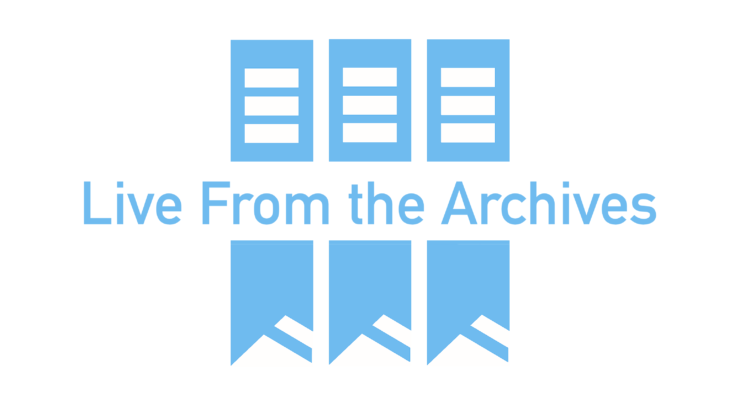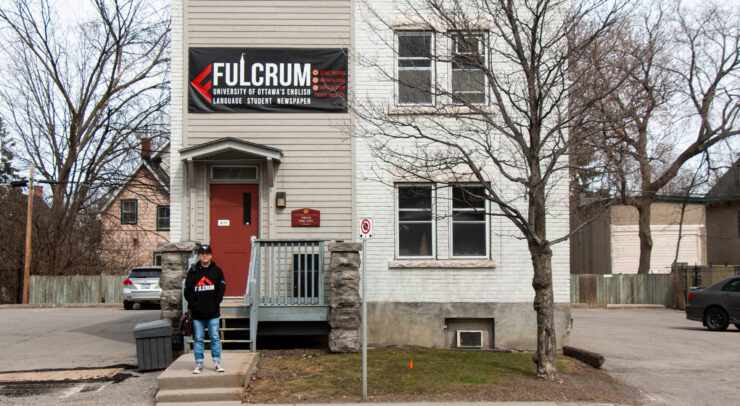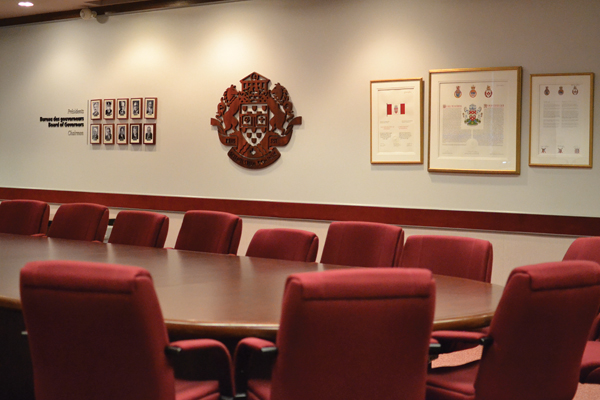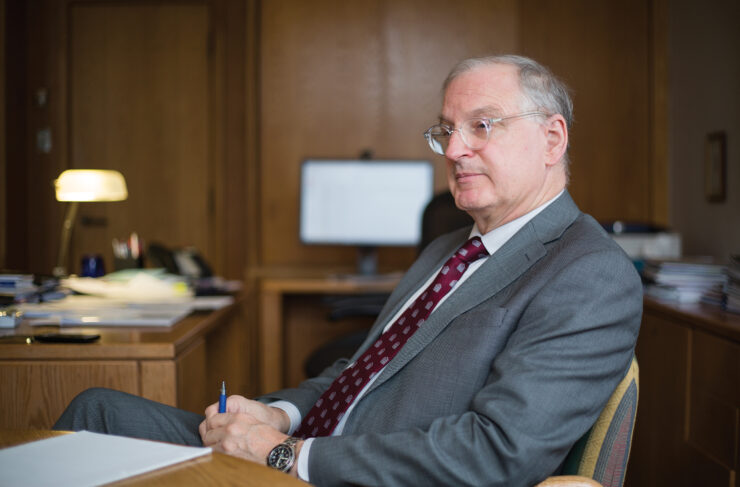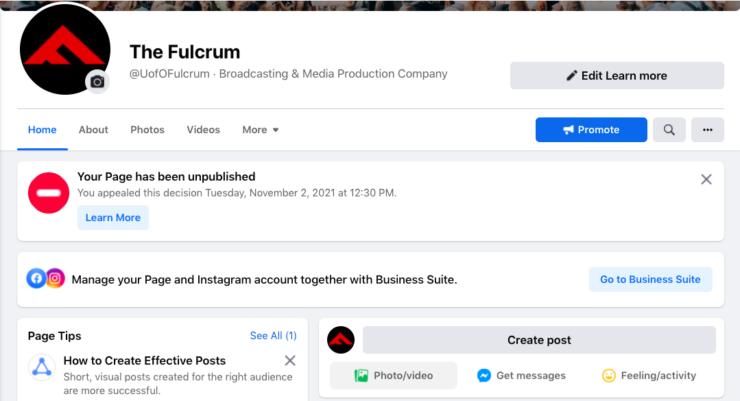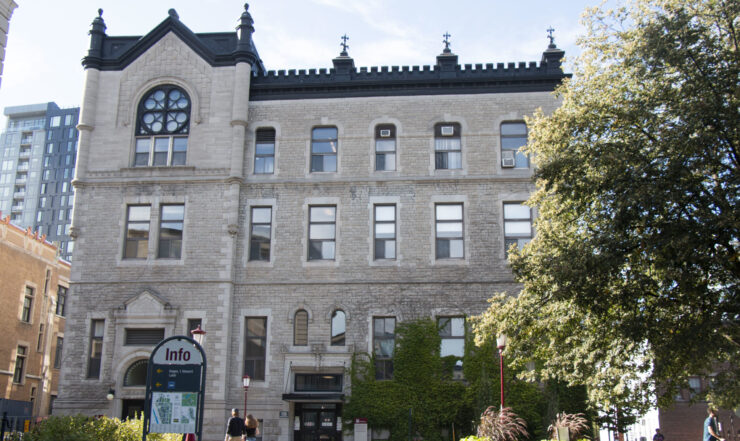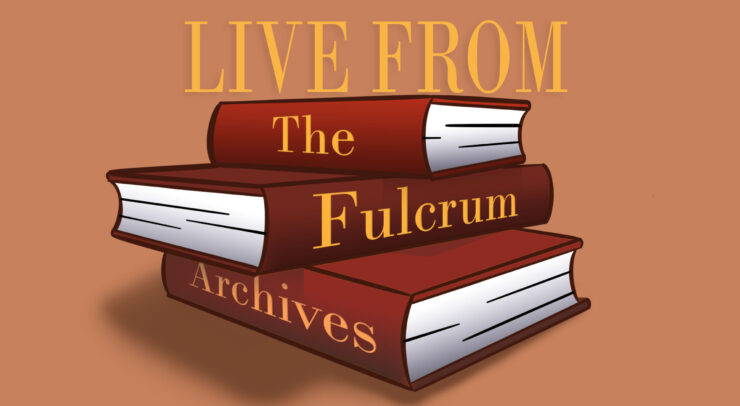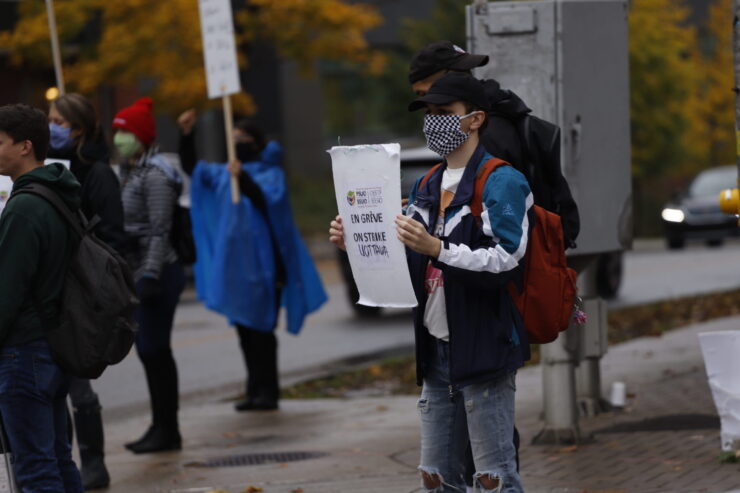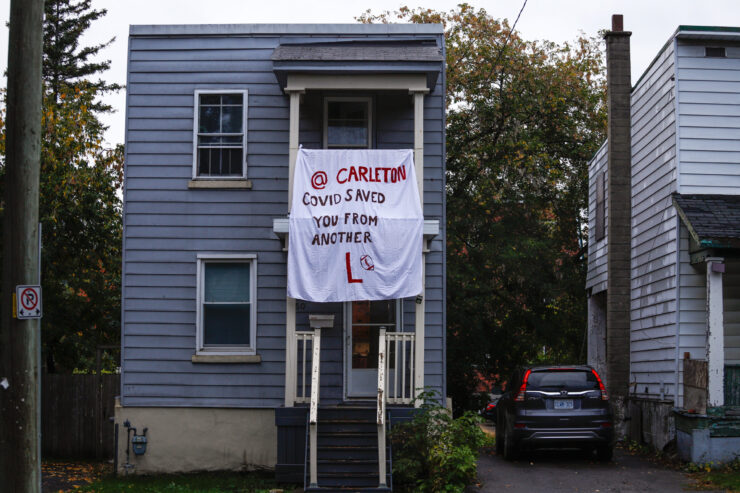We have lost access to one of our more accessible places to post new articles, share story call-outs, and ultimately engage with our audience.
editorial
In an editorial in 1988, the Fulcrum editorial board spoke about officials trying to “kill Pedro” by limiting ticket sales and scheduling the annual game over Thanksgiving.
I’ve been at the Fulcrum for four years now, half of those as its editor-in-chief — it’s time for me to move on. However, before I do, I think it is worth reflecting on my five long years in student journalism. Apologies in advance, as this may get a little sappy.
We have concerns about the vague wording within individual articles, and how that could lead to articles being interpreted in a way to punish students for actions that don’t harm other students, but instead the reputation of the University.
The U of O president’s report to the Senate did not provide the same updates in both languages when it came to the University’s reception of the academic freedom report. The updates in French were much more extensive, and the message very different — these updates should have been the same in both languages to not keep unilingual members of the U of O community in the dark.
On Oct. 22, the Fulcrum’s Facebook page was unpublished for, allegedly, breaking Facebook’s page policies. Which policies? We couldn’t tell you. Since then, our editor-in-chief has launched two appeals to Facebook, but we still have yet to hear back from the social media giant.
Theatre: this is an “until death do us part” situation, and I’m not going anywhere. I’m here for you through the rough patch.
The Vote on Campus initiative served to expand accessible voting for young voters. This was especially beneficial for students voting for their home riding rather than the riding of their university. In the absence of this program, many are confused about how to vote — where does one register, and how does one navigate voting from afar?
Although Justice Grant Huscroft clearly showed that the provincial government contravened the “University Acts” by infringing on universities’ autonomy with the SCI, is this really the final nail in the coffin for the policy, or will the government be stubborn and drag taxpayers in an even longer battle with Ontario’s university students?
The Fulcrum fully endorses the will of all the candidates who wish to serve their fellow students and represent their interests within student government on a voluntary basis.
Torstar Corporation – which owns newspapers such as the Toronto Star and Hamilton Spectator – has embraced gambling, of all things, as a way to fund their operations. This development offers a sobering look at the realities of modern journalism and the shaky potential for the survival of print news.
This policy is something that does not benefit students, as we saw in 2019. It leaves student services across campus anxious and creates more uncertainty leading up to the fall 2021 semester after the hell that was the 2020-21 academic year.
It takes courage to get involved in student politics as election campaigns are stressful for all those involved … as U of O students, we owe it to each other to not partake in such repulsive behaviour.
Without the archived minutes and streams publicly available online, those who are unable to attend are left unaware of what occurs during the meeting.
Students have other bills to pay.
“As the university advisor on mental health, I felt compelled to write to address some of your concerns,” writes Elizabeth Kristjansson, the University of Ottawa’s advisor on mental health.
“I realized I needed to write a piece representing the voices of my present, and to the best of my ability, former colleagues who have dedicated much time and energy to covering the mental health crisis on campus — often at the detriment of their own mental health.”
In a tale that seems to be as old as time, the University of Ottawa administration has once again come under attack for not doing enough to fight anti-Black racism on campus.
Not all students start on an equal playing field even with the option of universal, pass or fail grading. For many students, especially international students, online learning has brought challenges that other students don’t have to face.
It is no revelation that this school year has been difficult for all due to COVID-19. The pandemic for most, if not all, has brought on deeply entrenched senses of stress, anxiety and loneliness.
At the height of the “War on Terror” in 2003, the Fuclrum’s editorial board wrote a touching editorial on the need to cherish Canadian veterans from past and present wars.
It’s been more than a week now since the University of Ottawa’s support staff (PSUO-SSUO) went on strike following the breakdown of mediated talks with the University of Ottawa on Oct.15. The Fulcrum believes it’s time for the University to get back to the bargaining table and strike a fair deal with PSUO-SSUO members that does not involve significant cuts to members healthcare coverage.
Due to COVID-19 related cancellations no varsity athlete will step on the field, court or ice for most of the 2020-21 season. So why are they allowed to train? Why are they the exception?
Editorial: The Fulcrum has a clear message to all non-Black U of O professors and students who use the n-word while teaching or plan to use it in the future — don’t.
If the pandemic has made us realize anything as young adults is that our youth is precious and this virus is robbing us of valuable time we will never get back. The cancellation of the Panda Game, although a microcosm of the pandemic, helps us realize that good times are invaluable and should be cherished.


